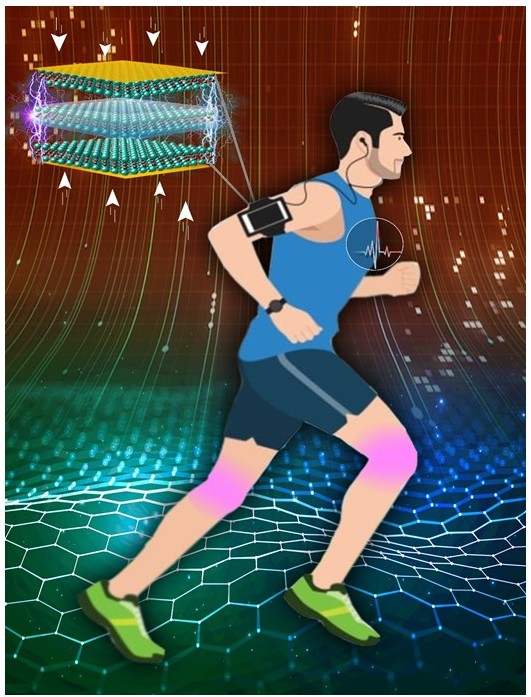Over the past years, various novel wellbeing and healthcare devices (e.g., diet tracking, mental stress detection, and rehabilitation) and medical implants (e.g. sensors, pacemakers, cochlear implants) have been developed and employed in a broad range of applications from monitoring physical activities and embedded in various parts of the human body. However, the power sources of these wearable and healthcare devices are traditional batteries, which is still considered one of the drawbacks. Although advances in battery technology have led to substantial reductions in overall sizes and growths in storage capacities, the operational lifetimes of batteries remain limited, rarely exceeding a few days for wearable devices and a few years for implants.
Harvesting power directly from natural processes, such as motions of the human body (breathing, walking, arm-motions, etc.), represents an attractive alternative for powering several healthcare devices from pacemakers to orthopedic implants as well as different sensors. Our group is current developing self-charging power supplying unit by integrating energy harvesting nanogenerators (triboelectric/piezoelectric) and energy storage (supercapacitor/batteries) devices.
